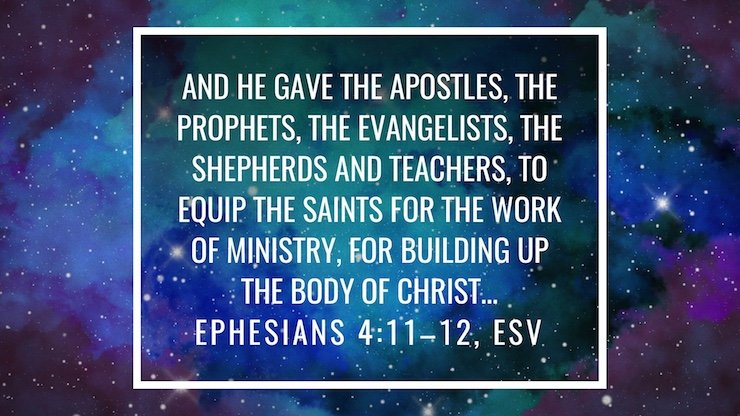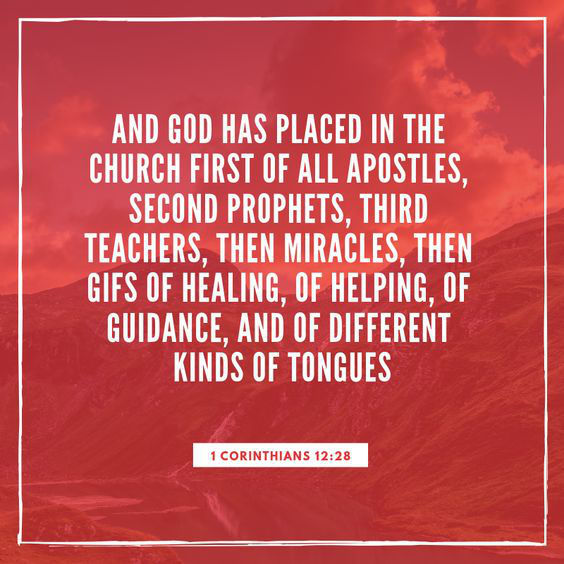Understanding and cultivating spiritual gifts within a church is essential for fostering spiritual growth and unity. With that in mind, this Spiritual Gifts Chart has been created to assist both leaders and church members in uncovering and developing the divine talents God has given each believer.
The chart provides clear and concise descriptions of each spiritual gift, accompanied by relevant scripture references and passages. Organized in an easy-to-read format, the chart is designed to offer insights into individual spiritual gifts while empowering leaders to guide others in their faith journey.
The aim of this Spiritual Gifts Chart is to serve as a practical and engaging tool for pastors and leaders, promoting spiritual growth and unity within the church community. By embracing these gifts and using them to glorify God and serve one another in love, congregations can reach their full potential and thrive in their faith.
Table of contents
- Spiritual Gift Chart
- Frequently Asked Questions About Spiritual Gifts
- What is the purpose of spiritual gifts within the church?
- How can I discover my own spiritual gifts and those of my congregation members?
- Can a person have more than one spiritual gift, and do these gifts change over time?
- How can I encourage the development and use of spiritual gifts within my church community?
- What is the role of the Holy Spirit in the distribution and activation of spiritual gifts?
- How do spiritual gifts differ from natural talents or learned skills?
- How can I address potential conflicts or misunderstandings related to the use of spiritual gifts within my congregation?
- Using Your Spiritual Gifts
- More Content Related To Spiritual Gifts

Spiritual Gift Chart
| Gift | Scripture | Scripture Text | Description |
| Wisdom | 1 Corinthians 12:8 | “For to one is given through the Spirit the utterance of wisdom, and to another the utterance of knowledge according to the same Spirit,” | Ability to understand and apply deep, spiritual truths to everyday life, and provide wise counsel. |
| Knowledge | 1 Corinthians 12:8 | “For to one is given through the Spirit the utterance of wisdom, and to another the utterance of knowledge according to the same Spirit,” | Ability to understand and grasp complex, divine truths and share them effectively with others. |
| Faith | 1 Corinthians 12:9 | “To another faith by the same Spirit, to another gifts of healing by the one Spirit,” | Exceptional trust and confidence in God, often enabling believers to stand strong in challenging situations. |
| Healing | 1 Corinthians 12:9, 28 | “To another faith by the same Spirit, to another gifts of healing by the one Spirit,” “… and God has appointed in the church first apostles, second prophets, third teachers, then miracles, then gifts of healing, helping, administrating, and various kinds of tongues.” | Ability to bring physical, emotional, or spiritual healing to others through prayer or other means. |
| Miracles | 1 Corinthians 12:10, 28 | “To another the working of miracles,” “… and God has appointed in the church first apostles, second prophets, third teachers, then miracles, then gifts of healing, helping, administrating, and various kinds of tongues.” | Ability to perform supernatural acts by the power of God that serve as signs and wonders. |
| Prophecy | 1 Corinthians 12:10, 28; Romans 12:6; Ephesians 4:11 | “To another prophecy, … and God has appointed in the church first apostles, second prophets, third teachers, then miracles, then gifts of healing, helping, administrating, and various kinds of tongues.” “… Having gifts that differ according to the grace given to us, let us use them: if prophecy, in proportion to our faith;” “… And he gave the apostles, the prophets, the evangelists, the shepherds and teachers,” | Ability to receive and communicate God’s messages to others, often to edify, exhort, or comfort the Church. |
| Discerning of spirits | 1 Corinthians 12:10 | “To another the ability to distinguish between spirits,” | Ability to discern the presence and influence of spiritual forces, whether divine, demonic, or human. |
| Speaking in tongues | 1 Corinthians 12:10, 28 | “To another various kinds of tongues,” “… and God has appointed in the church first apostles, second prophets, third teachers, then miracles, then gifts of healing, helping, administrating, and various kinds of tongues.” | Ability to speak in an unlearned language for the purpose of edification, prayer, or proclamation. |
| Interpretation of tongues | 1 Corinthians 12:10 | “To another the interpretation of tongues.” | Ability to understand and translate messages spoken in unknown languages for the benefit of others. |
| Apostleship | 1 Corinthians 12:28; Ephesians 4:11 | “And God has appointed in the church first apostles, second prophets, third teachers, then miracles, then gifts of healing, helping, administrating, and various kinds of tongues.” “And he gave the apostles, the prophets, the evangelists, the shepherds and teachers,” | Ability to plant, lead, and develop churches with a focus on spreading the gospel and expanding God’s kingdom. |
| Teaching | Romans 12:7; Ephesians 4:11 | “Having gifts that differ according to the grace given to us, let us use them: if prophecy, in proportion to our faith; if service, in our serving; the one who teaches, in his teaching;” “And he gave the apostles, the prophets, the evangelists, the shepherds and teachers,” | Ability to educate and instruct others in the Bible and Christian principles, promoting spiritual growth. |
| Helps | 1 Corinthians 12:28 | “And God has appointed in the church first apostles, second prophets, third teachers, then miracles, then gifts of healing, helping, administrating, and various kinds of tongues.” | Ability to provide practical assistance, support, and service to others, often behind the scenes. |
| Administration | 1 Corinthians 12:28 | “And God has appointed in the church first apostles, second prophets, third teachers, then miracles, then gifts of healing, helping, administrating, and various kinds of tongues.” | Ability to lead, organize, and manage others effectively in various church settings and projects. |
| Exhortation | Romans 12:8 | “The one who exhorts, in his exhortation; the one who contributes, in generosity; the one who leads, with zeal; the one who does acts of mercy, with cheerfulness.” | Ability to encourage, comfort, and counsel others, helping them grow in their faith and overcome challenges. |
| Giving | Romans 12:8 | “The one who exhorts, in his exhortation; the one who contributes, in generosity; the one who leads, with zeal; the one who does acts of mercy, with cheerfulness.” | Ability to generously and joyfully provide financial or material resources to meet the needs of others. |
| Leading | Romans 12:8 | “The one who exhorts, in his exhortation; the one who contributes, in generosity; the one who leads, with zeal; the one who does acts of mercy, with cheerfulness.” | Ability to guide, inspire, and direct others toward a shared vision or goal within the church community. |
| Mercy | Romans 12:8 | “The one who exhorts, in his exhortation; the one who contributes, in generosity; the one who leads, with zeal; the one who does acts of mercy, with cheerfulness.” | Ability to empathize with and compassionately assist those who are suffering or in need. |
| Evangelism | Ephesians 4:11 | “And he gave the apostles, the prophets, the evangelists, the shepherds and teachers,” | Ability to effectively share the gospel with others, leading them to a saving knowledge of Jesus Christ. |
| Pastoring | Ephesians 4:11 | “And he gave the apostles, the prophets, the evangelists, the shepherds and teachers,” | Ability to care for, guide, and nurture the spiritual well-being of a group of believers, like a shepherd. |

Frequently Asked Questions About Spiritual Gifts
As we explore the spiritual gifts chart, questions naturally arise. In this FAQ section, we address some common inquiries to provide clarity and guidance on understanding and using these divine abilities.
What is the purpose of spiritual gifts within the church?
The purpose of spiritual gifts within the church is to build up, serve, and edify the body of Christ. Each believer receives at least one gift, given by the Holy Spirit, to contribute to the overall growth and well-being of the church.
By using spiritual gifts, believers can support one another, meet the needs of the church, and fulfill God’s mission on earth, which ultimately leads to unity and maturity in faith.
How can I discover my own spiritual gifts and those of my congregation members?
Discovering your own spiritual gifts and those of your congregation members can be achieved through prayer, self-assessment, and seeking feedback from others. Begin by asking God for guidance and wisdom, then evaluate personal experiences, passions, and abilities.
Additionally, consider taking spiritual gifts assessments or inventories, and seek input from trusted friends, mentors, or church leaders who can offer insight into your gifts.
Can a person have more than one spiritual gift, and do these gifts change over time?
Yes, a person can have more than one spiritual gift, and these gifts may change or evolve over time. As a believer matures in their faith and gains new experiences, the Holy Spirit may develop different gifts. It is essential to remain open to the Spirit’s work and be willing to use and grow in various gifts as God directs.
How can I encourage the development and use of spiritual gifts within my church community?
Encouraging the development and use of spiritual gifts within your church community can be done by teaching about spiritual gifts, providing opportunities for members to serve in various ministries, and promoting an atmosphere of support and encouragement.
Recognize and affirm the gifts of others, and create a culture where each person’s unique contributions are valued.
What is the role of the Holy Spirit in the distribution and activation of spiritual gifts?
The Holy Spirit plays a crucial role in the distribution and activation of spiritual gifts. As the third Person of the Trinity, the Holy Spirit equips believers with spiritual gifts according to His will and purpose.
It is through the Holy Spirit’s guidance and empowerment that believers can effectively utilize their gifts to serve and glorify God.
How do spiritual gifts differ from natural talents or learned skills?
Spiritual gifts differ from natural talents or learned skills in that they are supernatural abilities given by the Holy Spirit to serve the body of Christ.
While natural talents and learned skills can contribute to a person’s ministry, spiritual gifts are specifically designed to edify the church and advance God’s kingdom in ways that extend beyond human abilities or expertise.
How can I address potential conflicts or misunderstandings related to the use of spiritual gifts within my congregation?
Addressing potential conflicts or misunderstandings related to the use of spiritual gifts within your congregation requires clear communication, biblical teaching, and a spirit of humility.
Educate church members about the purpose and function of spiritual gifts, emphasizing the need for unity, love, and mutual submission. Encourage open dialogue about spiritual gifts, and foster an environment of respect, cooperation, and grace, where each person’s unique contributions are valued and utilized for the good of the entire church community.

Using Your Spiritual Gifts
Understanding and growing your spiritual gifts is essential for the spiritual growth and unity of a congregation. By using the Spiritual Gifts Chart and engaging in open conversations about these divine abilities, church leaders can empower their members to embrace their unique callings and contribute to the overall well-being of the church.
We hope this resource serves as an tool to foster a deeper understanding of spiritual gifts. May it inspire the members of your church to utilize their God-given talents for His glory. Let us continue to support one another and work together to build up the body of Christ.




